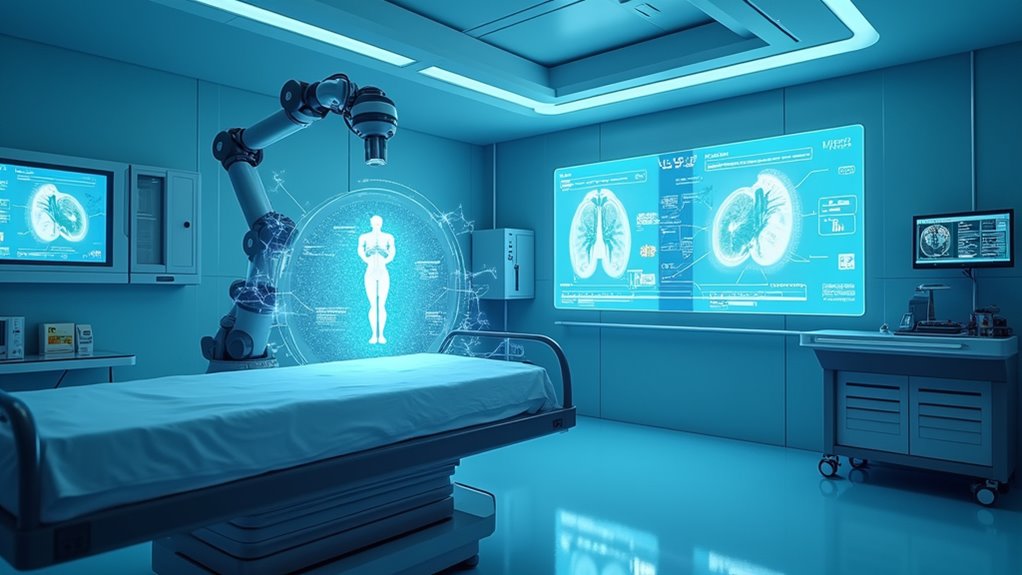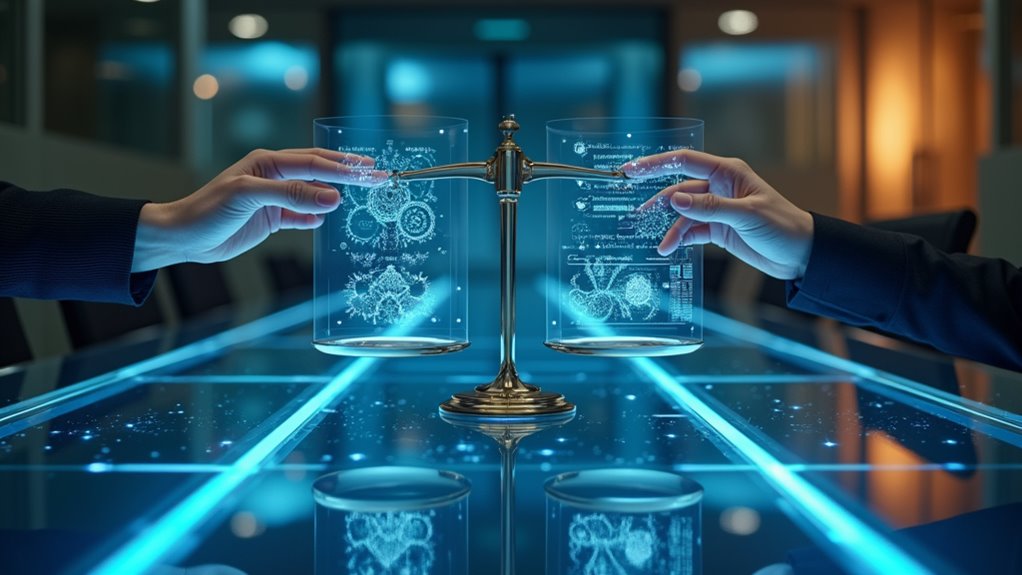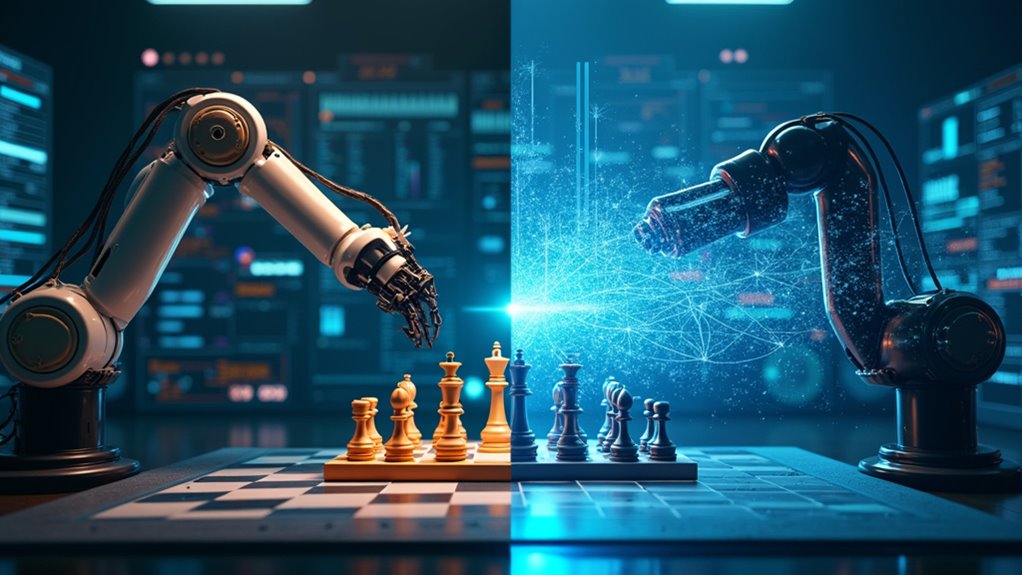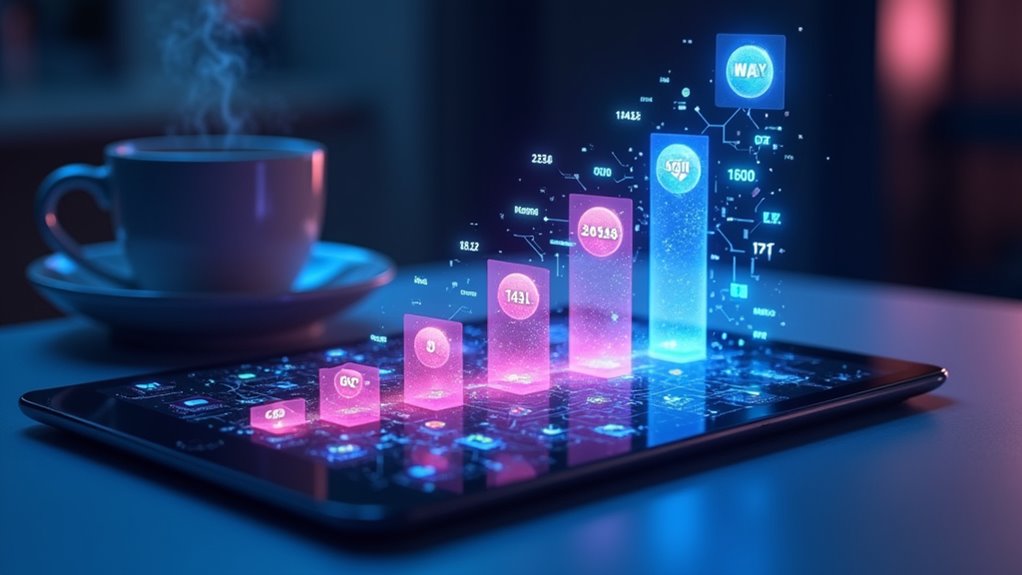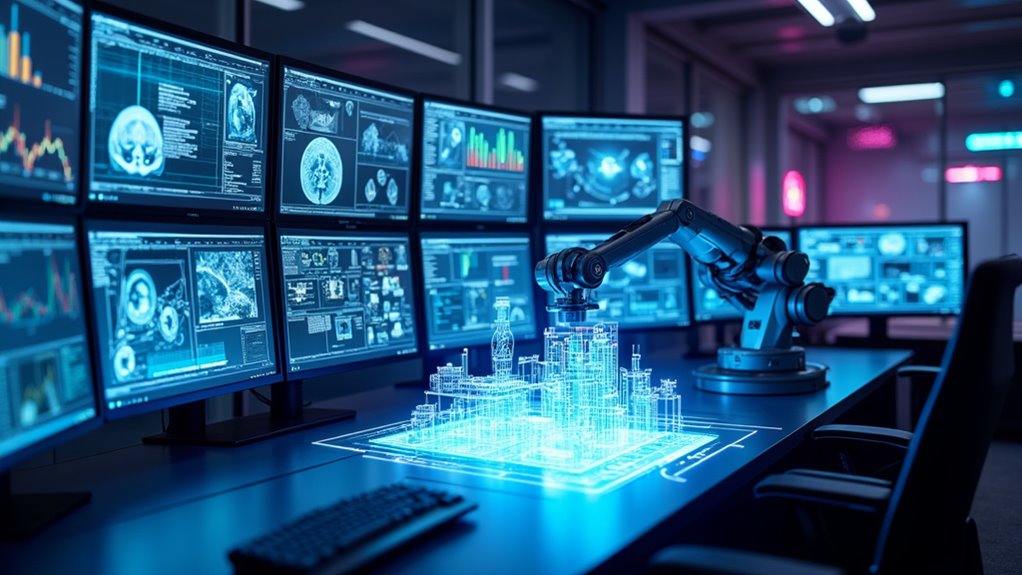AI is transforming healthcare beyond mere efficiency gains. Medical imaging diagnosis now reaches 99% accuracy with AI systems identifying potential cancers 30 times faster than humans. Administrative tasks are being automated, reducing physician burnout and redirecting focus to patient care. Drug discovery timelines have shortened dramatically through AI analysis of molecular structures. The healthcare AI market is projected to hit $187 billion by 2030, promising personalized treatments and predictive care systems. Discover how these innovations might soon revolutionize your medical experience.
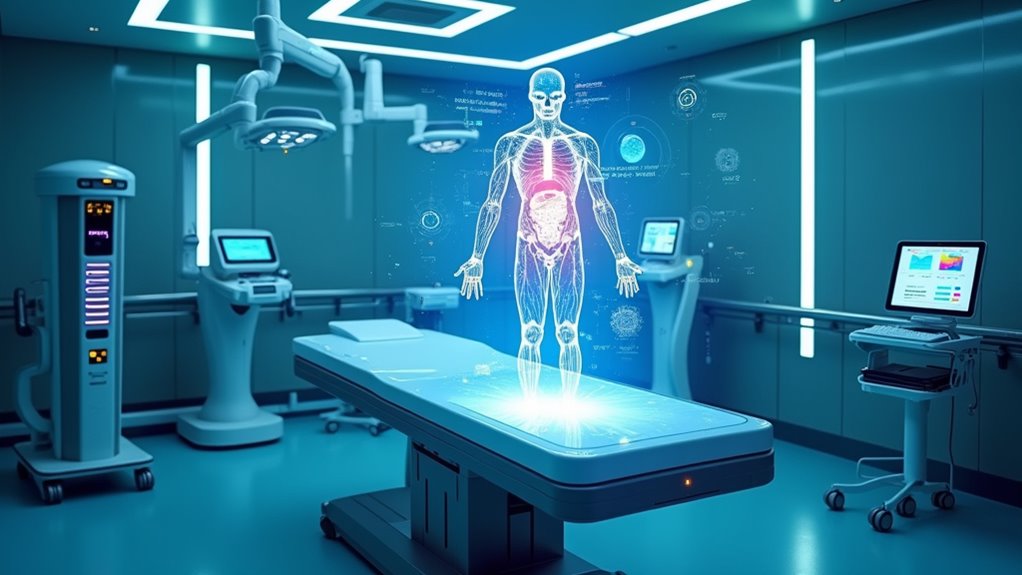
While traditional healthcare systems have long struggled with resource constraints and human limitations, artificial intelligence is now revolutionizing the medical landscape at an unprecedented pace.
AI’s impact extends beyond mere efficiency gains—it’s transforming core medical practices while raising critical questions about AI Ethics and Patient Privacy. Who controls your health data when machines make diagnoses? This balancing act between technological advancement and ethical considerations defines healthcare’s AI revolution. Medical institutions must implement robust safeguards to protect sensitive patient information while leveraging AI’s analytical power. Similar to banking fraud detection, healthcare organizations can utilize predictive analytics to identify abnormal patterns that might indicate medical insurance fraud.
The diagnostic domain has witnessed remarkable AI advancements, particularly in medical imaging. AI systems now analyze X-rays, MRIs, and CT scans with accuracy rivaling—sometimes exceeding—human specialists. These tools don’t replace radiologists; they enhance their capabilities. AI systems have demonstrated 99% diagnostic accuracy, identifying potential cancers 30 times faster than human doctors.
AI doesn’t replace medical specialists—it elevates their diagnostic capabilities beyond human limitations.
Meanwhile, drug discovery has accelerated dramatically through AI applications that analyze molecular structures and predict interactions, cutting years from traditional development timelines. Your next medication might be AI-discovered!
Behind the scenes, AI streamlines administrative tasks that once consumed countless hours. Billing, scheduling, and documentation now happen with minimal human intervention. This automation reduces healthcare professional burnout and allows them to focus on what matters most—patient care. Resources once wasted on paperwork can be redirected to treatment and research.
Telehealth platforms powered by AI have transformed healthcare delivery, especially in underserved areas. Patients connect with providers remotely, while AI tools monitor essential signs and medication adherence from home. These connected care systems create seamless experiences across the healthcare journey.
Looking ahead, healthcare AI will evolve from today’s specialized applications into thorough, integrated systems. Short-term developments focus on automating routine diagnostics, while medium-term growth will revolutionize personalized treatments. The staggering growth projection of the AI healthcare market from 187 billion dollars by 2030 reflects industry confidence in these transformative technologies.
The long-term vision? Predictive, autonomous healthcare systems that anticipate needs before symptoms appear. Eventually, AI will integrate genomic, clinical, and environmental data to provide truly holistic care while simultaneously reducing costs and improving outcomes. The future of medicine isn’t just AI-assisted—it’s AI-transformed.
Frequently Asked Questions
Will AI Replace Doctors and Healthcare Professionals?
AI won’t replace healthcare professionals, but it will transform their roles.
While job displacement concerns exist for routine tasks, AI capabilities primarily complement rather than substitute human expertise. Medical professionals need additional training requirements to effectively utilize AI tools.
The future lies in collaboration potential—doctors partnering with AI to enhance diagnoses and treatment plans. Think of AI as the savvy assistant, not the replacement.
Doctors bring irreplaceable empathy and intuition that algorithms simply can’t replicate.
How Secure Is Patient Data When Using AI Systems?
Patient data in AI systems can be quite secure, but it’s not foolproof. Strong data encryption protocols protect information from prying eyes, while regulatory frameworks like HIPAA and GDPR enforce standards.
Still, vulnerabilities exist. Adversarial attacks? They’re real threats. Patient privacy depends on implementing multiple security layers—not just fancy AI algorithms.
Healthcare organizations must conduct regular audits, train staff properly, and utilize advanced monitoring. Remember: security is only as strong as its weakest link.
Can AI Reduce Healthcare Costs for Patients?
AI can markedly reduce healthcare costs for patients. Through automation of administrative tasks and error reduction, AI drives substantial cost savings that can translate to patient affordability.
It eliminates unnecessary procedures through personalized treatment plans while predictive analytics prevents expensive hospital admissions. The technology streamlines operations, optimizes resource allocation, and enhances telemedicine—all contributing to lower bills.
In fact, broader AI adoption could save the healthcare industry up to $360 billion annually, and yes, some of those savings might actually reach patients’ wallets.
How Accurate Are AI Diagnostic Tools Compared to Human Doctors?
AI diagnostic tools often surpass human doctors in machine learning accuracy. Studies show ChatGPT achieving 90% diagnostic reliability compared to physicians’ 76%.
Here’s the reality: AI processes patterns faster than humans can blink, without fatigue or bias clouding judgment. Don’t be shocked when your doctor’s “educated guess” falls short of an algorithm’s precision!
However, these digital diagnosticians perform best when supporting human experts, not replacing them. The future? A powerful human-AI collaboration that maximizes strengths on both sides.
What Ethical Concerns Arise From AI Implementation in Healthcare?
AI implementation in healthcare raises several ethical concerns.
Patient data privacy and security remain paramount, with potential breaches threatening confidentiality.
Algorithmic opacity creates “black box” issues where decisions can’t be explained.
Bias mitigation is essential, as AI systems may perpetuate disparities if trained on unrepresentative data.
Informed consent becomes complex when patients don’t understand how AI influences their care.
Additionally, questions of liability arise—who’s responsible when AI makes mistakes: the doctor, developer, or system itself?
